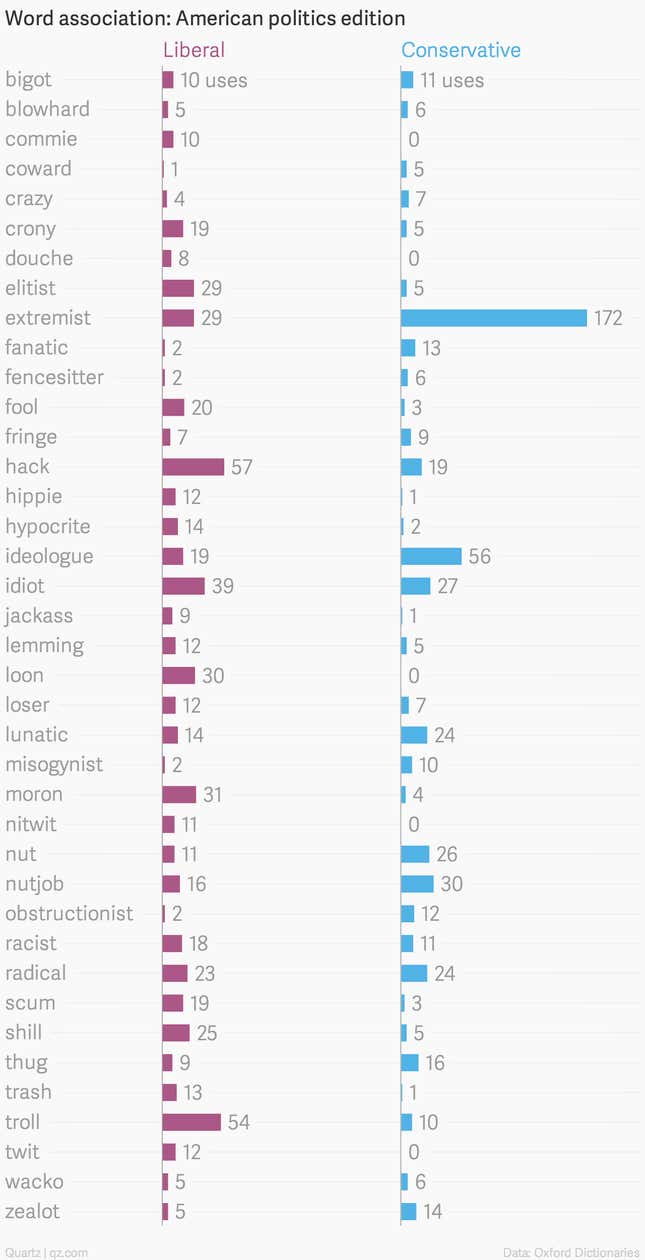
American political insult mad-libs might go something like this:
A Democrat says: “Conservative (noun or plural noun) are destroying America.”
A Republican responds: “No, left-wing (noun or plural noun) are destroying America.”
If you’re American, you probably used different words for each blank. Maybe “idiot” and “zealot,” or “hack” and “nut job.”
Analysis by Katherine Martin, a lexicographer with Oxford Dictionaries, suggests that the words Americans use to belittle each other’s political views vary based on the target’s political affiliation.
Martin spent time rifling through Oxford’s New Monitor Corpus to identify the insults Americans most commonly lodge at their ideological adversaries. The corpus monitors thousands of websites for articles and other English text, storing them in a database that now contains over 3 billion words. Oxford uses the data to analyze how word usage evolves over time, usually to help decide whether or not to include it in a new dictionary.
Much of the material on the sites it monitors is from official sources like news sites or large organizations, but drawing from the web gives the database some of the ideological flair specific to blogs and online comments. To identify trends in American vitriol, Martin looked for insults that followed words calling out someone’s political allegiance. One group’s words were ”liberal,” “Democrat,” and “left-wing.” The other’s: ”conservative,” “Republican,” and “right-wing.” She then removed insults that were used fewer than five times, leaving her with 1,200 total insults.
The analysis is rough—not all insults come in the simple adjective + noun form, for example—but the results clearly show that derogation is yet another subject on which Americans are divided.
“Hack” was the insult that most often followed the “liberal” group of words, according to the corpus. By a wide margin, “extremist” most commonly came after ”Republican,” “right-wing,” or “conservative.” A few universal insults made it into the top 10 of each group—you know, standbys such as “idiot,” “wacko,” and “blowhard.”
This chart shows the number of times the most common insults followed a “liberal” or “conservative” adjective.

Some of the results reveal cultural stereotypes unique to the US. Liberals are more associated with being “elitists,” for example, which his the same moniker often used to describe the UK’s conservative party. American conservatives, meanwhile, are often called “misogynists.”
Americans Republicans might be set to win a majority in the country’s mid-term elections, but that doesn’t mean people will stop calling them “ideologues”—especially not their liberal “hippie” counterparts.